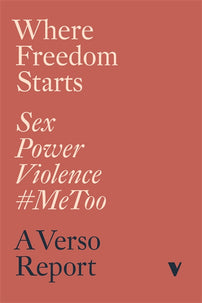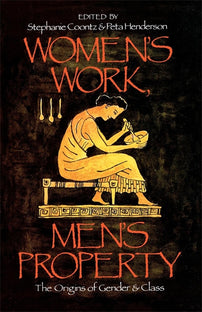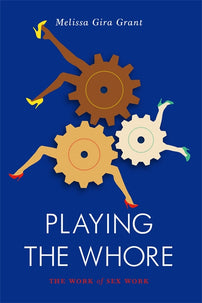Daughters of the Strike: A May Day Statement
We were born from the confluence that is taking place between workers in neighborhoods, in factories, in the popular economy, between domestic workers, care workers, precarious workers, among those organized in unions and multiple other feminist collectives, among those who don’t have a visible boss but engage in piece work in their homes and those who are unemployed workers.

First published by Ni Una Menos on Facebook. Translated by Liz Mason-Deese.
Only two and a half years ago (October 19, 2016) we were on the streets carrying out the first National Women’s Strike. That call made the unions shake: who is the subject giving that command? Who is willing to bring the country to a stop because of a young woman’s murder?
With the force of that moment we decided to launch the call for the first International Women’s Strike on March 8, 2017, which we later repeated with the International Feminist Strike in 2018. The word STRIKE is already part of the vocabulary with which we have chosen to organize ourselves. We made it ours and expanded it so that it would cover all the forms of work that women carry out every day, which create a triple working day for us.
This May 1, we salute all women, lesbians, and trans women, because we are all workers!
Daughters of the Strike
Who are we?
We were born from the confluence that is taking place between workers in neighborhoods, in factories, in the popular economy, between domestic workers, care workers, precarious workers, among those organized in unions and multiple other feminist collectives, among those who don’t have a visible boss but engage in piece work in their homes and those who are unemployed workers. This encounter has been brewing ever since the first national women’s strike, because feminism is expanding a common frame for understanding that links and empowers very heterogeneous struggles and experiences, enabling an unthinkable popular recomposition to occur that transgresses and transcends the fragmentation of unions and divisions between political parties.
The international women’s strikes on March 8, 2017 and 2018 condensed the social force of this multiplicity and demonstrated a tide that continues to grow and engulf us. This process demonstrated that the strike can be appropriated, reinvented, and broadened beyond the limits of the world of waged formal work organized in unions almost exclusively by men. When the women’s movement calls for a strike, the strike stops being an order and becomes a question: what does it mean to strike in each concrete situation? How is multiplicity constructed in a single powerful political act: the strike of housewives, street vendors, women agricultural workers, students, the unemployed, care workers, migrants? Even more: what does it mean to strike when your union does not give the order?
The Bad Strikers
It is common practice to attempt to isolate women’s experience in unions from other political practices. The decision to mix and form alliance expressed the force of the strike and elicited an immediate response. Since then they continue telling us that feminism is sectarian: that it leaves out men and weakens the unity of demands. Thus, the women’s movement is presented as a sort of “external agent” in regards to unionism, erasing the intersectionality of our experiences and its power to question masculine authority and its patriarchal logic of construction.
We are told that women are not prepared to take the spaces of power that we reclaim: they say that we are intransigent and therefore, supposedly, do not know how to negotiate. They do not recognize that we are engaging in another logic of construction, one that makes clear the limits and inefficiencies of the form of negotiation with the government they have carried out for so long. They say that when the feminist movement calls a strike it delegitimizes and weakens the power of the union leadership, in a moment when unions are being attacked and losing prestige: thus we are blamed for taking initiative in the face of their inaction. We are told that taking action on March 8 takes away force from other actions: they ignore and despise the inclusive form that has been produced by a feminist view of the conflicts.
Why Are We Organizing Ourselves?
The confluence of struggles that links diverse territories of work (domestic, community, waged, precarious, of care, migrant) through a feminist perspective allows for radicalizing and deepening our demands. We put the concept of patriarchal work into crisis because: we question the idea that the only dignified work is that which comes with a wage.
We question the fact that the only masculine work is recognized as work.
We question the idea that only work that is done outside of the house or the neighborhood is considered productive work.
We stop waiting for the ideal moment to raise the issue of the multiple forms of oppression we face.
From this intersection we are constructing a popular feminism that recognizes the multiplicity of ways in which we produce value. Our struggle is not contained by issues of quotas and representation.
From this intersection we are elaborating a diagnosis, a dynamic of transversality and a form of resistance, that allows us to confront the pension and labor reforms because it politicizes all spheres of the reproduction of life.
WE ARE ALL WORKERS!
WE WANT OURSELVES ALIVE, FREE, AND WITHOUT DEBT!
[book-strip index="1" style="display"]




